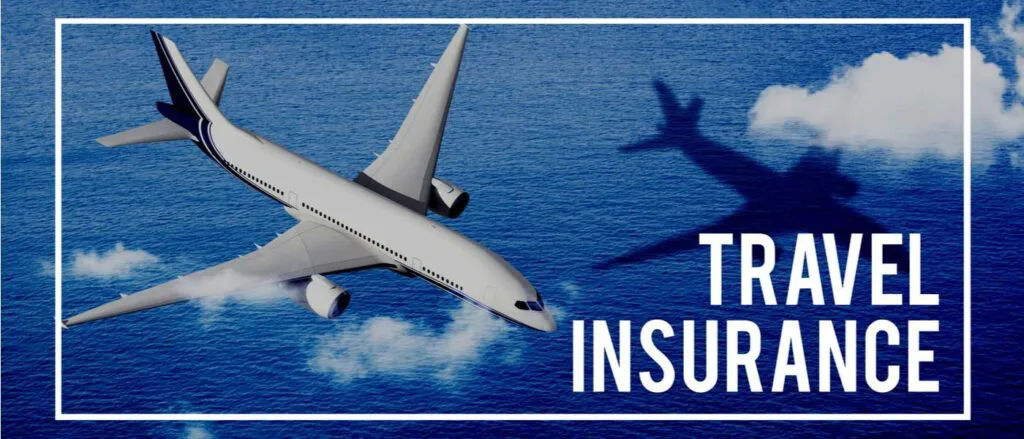Traveling, whether for business or leisure, can be an exciting experience, but it’s important to be prepared for the unexpected. From flight cancellations to medical emergencies, travel insurance provides a safety net that can help you avoid costly financial losses. However, finding cheap travel insurance that still offers comprehensive coverage can sometimes feel like a daunting task. In this article, we’ll discuss how to find affordable travel insurance, the factors that influence the cost, and tips for securing the best value for your travel needs.

Table of Contents:
- What is Travel Insurance?
- Why Do You Need Travel Insurance?
- Factors That Affect the Cost of Travel Insurance
- Types of Travel Insurance Coverage
- How to Find Cheap Travel Insurance
- Tips for Saving on Travel Insurance
- Common Myths About Cheap Travel Insurance
- Frequently Asked Questions (FAQs)
- Conclusion
1. What is Travel Insurance?
Travel insurance is a policy designed to protect you from financial losses during your trip. It typically covers trip cancellations, medical emergencies, lost luggage, flight delays, and other unexpected events that could disrupt your travel plans. While it’s not mandatory, travel insurance is a wise investment for any traveler, especially if you’re traveling abroad or engaging in activities that carry risks, such as hiking or skiing.
2. Why Do You Need Travel Insurance?
Travel insurance can offer significant peace of mind while traveling, protecting you from situations that could lead to substantial financial losses. Here are some reasons why travel insurance is essential:
a. Trip Cancellations or Interruptions
If your trip is canceled or cut short due to illness, family emergencies, or unforeseen events, travel insurance can reimburse you for non-refundable expenses like flight tickets, hotel bookings, and tours.
b. Medical Emergencies
Medical expenses abroad can be expensive, especially if you need emergency care or hospitalization. Travel insurance can cover medical treatment, emergency evacuation, and even the cost of bringing you back home.
c. Lost or Delayed Luggage
Luggage delays or loss can be frustrating. Travel insurance can compensate you for essential items you need to buy while waiting for your bags or reimburse you for the value of your lost items.
d. Flight Delays or Missed Connections
If a flight delay causes you to miss a connecting flight or affects your schedule, travel insurance can cover additional expenses like meals, accommodation, and rebooking costs.
3. Factors That Affect the Cost of Travel Insurance
The cost of travel insurance can vary depending on several factors. Understanding what affects your premiums can help you make informed decisions when purchasing a policy.
a. Duration of Your Trip
The longer your trip, the higher the cost of your travel insurance. Policies are often priced based on the length of the trip, so a two-week vacation will generally be cheaper to insure than a month-long journey.
b. Destination
Traveling to countries with high medical costs, such as the United States or some European nations, can increase the price of your insurance. Similarly, destinations with higher risks (like those prone to natural disasters or political instability) may also result in higher premiums.
c. Age of the Traveler
Older travelers typically face higher insurance costs, as they are more likely to require medical care while abroad. However, many travel insurers offer discounts for younger travelers or for families traveling together.
d. Type of Coverage
The more comprehensive your coverage, the more expensive your policy will be. For example, a basic policy might only cover trip cancellations and lost luggage, while more extensive plans may include medical emergencies, trip interruption, and coverage for high-risk activities.
e. Pre-Existing Health Conditions
If you have a pre-existing medical condition, travel insurance costs may be higher. Some insurers may exclude coverage for pre-existing conditions or charge higher premiums to account for potential medical needs.
4. Types of Travel Insurance Coverage
Understanding the types of coverage available is key to finding the right balance between cost and protection.
a. Basic Coverage
Basic travel insurance typically covers trip cancellation, medical emergencies, and lost luggage. It’s a good option if you're looking for affordable coverage that addresses the most common issues travelers face.
b. Comprehensive Coverage
Comprehensive policies provide more extensive protection, including trip cancellation, trip interruption, baggage loss, emergency medical care, and coverage for extreme activities like adventure sports. These policies offer peace of mind but come at a higher price.
c. Medical Travel Insurance
If you're traveling abroad, especially to countries with high medical costs, medical travel insurance can provide coverage for unexpected medical expenses, such as hospital stays, surgeries, and emergency medical evacuations.
d. Family Travel Insurance
Family travel insurance covers all members of your family, offering a bulk discount on premiums. This option is often cheaper than purchasing separate policies for each family member.
e. Annual Travel Insurance
If you travel frequently, an annual multi-trip policy might save you money over purchasing individual policies for each trip. This type of policy covers multiple trips within a year, making it ideal for business travelers or families who take vacations several times a year.
5. How to Find Cheap Travel Insurance
Finding cheap travel insurance doesn’t mean compromising on the protection you need. Here are some tips for finding affordable policies:
a. Compare Multiple Quotes
Different insurance providers offer different rates for the same type of coverage. Use online comparison tools to get quotes from various insurers, ensuring you find the best deal for your needs.
b. Opt for Basic Coverage
If you’re looking for the most affordable option, choose a basic policy that covers essential risks, like trip cancellations, medical emergencies, and lost baggage. You can always purchase additional coverage later if needed.
c. Buy Early
Booking your travel insurance early can save you money. Purchasing insurance as soon as you book your trip may also provide additional benefits, such as coverage for pre-trip cancellations.
d. Choose a Higher Deductible
Increasing your deductible (the amount you pay out of pocket before insurance kicks in) can lower your premium. Just be sure you can afford the higher deductible in case you need to make a claim.
e. Look for Special Offers or Discounts
Some insurance companies offer discounts for specific groups, such as students, senior citizens, or members of professional organizations. Look for promotional deals or multi-trip discounts that could help reduce your premium.
6. Tips for Saving on Travel Insurance
a. Stick to a Single Insurer
Bundling your travel insurance with other policies, like home or auto insurance, can sometimes result in discounts. Ask your insurer if they offer package deals.
b. Review Your Credit Card Benefits
Some credit cards offer travel insurance as part of their benefits, including coverage for trip cancellations, medical emergencies, or lost luggage. Check your card’s policy before purchasing additional insurance.
c. Avoid Unnecessary Add-Ons
Many insurers offer optional add-ons, like coverage for extreme sports or rental car damage. If you don’t need these extras, skip them to keep your costs down.
d. Travel During Off-Peak Seasons
Traveling during off-peak seasons can lower your insurance premium. Insurance costs are often higher during busy travel periods (e.g., holidays or school vacations), so consider traveling during quieter times of the year.
7. Common Myths About Cheap Travel Insurance
a. “Cheap Travel Insurance Offers No Protection”
While it’s true that very low-cost policies may offer minimal coverage, many affordable travel insurance policies still provide solid protection against common travel issues. Be sure to read the policy details and choose the coverage that fits your needs.
b. “All Travel Insurance Policies Are the Same”
Insurance policies vary significantly in terms of coverage, exclusions, and benefits. Comparing policies ensures you get the protection you need for the best price.
c. “Travel Insurance is Always Expensive”
Travel insurance can be affordable if you shop around and choose the right plan. Basic policies or policies for short trips tend to be cheaper, and you can find discounts or deals for specific traveler groups.
8. Frequently Asked Questions (FAQs)
Q: Is travel insurance mandatory?
A: No, travel insurance is not mandatory, but it is highly recommended to protect yourself from unforeseen events.
Q: What does cheap travel insurance cover?
A: Cheap travel insurance typically covers trip cancellation, lost baggage, and emergency medical expenses. More comprehensive coverage may include trip interruption, emergency evacuation, and extreme activity coverage.
Q: Can I cancel my travel insurance if I no longer need it?
A: Most travel insurance policies offer a cooling-off period (usually 14 days) during which you can cancel and receive a full refund, provided you haven’t made any claims.
9. Conclusion
Finding cheap travel insurance is all about comparing options, understanding what coverage you need, and making smart choices based on your travel plans. While affordable policies exist, it’s important to ensure that the coverage meets your needs. By considering factors like trip length, destination, and your specific needs, you can secure a policy that protects you without breaking the bank.
Travel insurance is an investment in peace of mind, ensuring that you can enjoy your trip with confidence, knowing you’re covered in case of an emergency.
Let me know if you need further assistance or if you would like to explore other travel-related topics!




